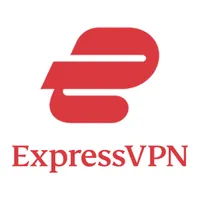Has ExpressVPN's price change played right into NordVPN's hands?
ExpressVPN now has three tiers of plan. I'll investigate whether the provider has lost its uniqueness or become great value
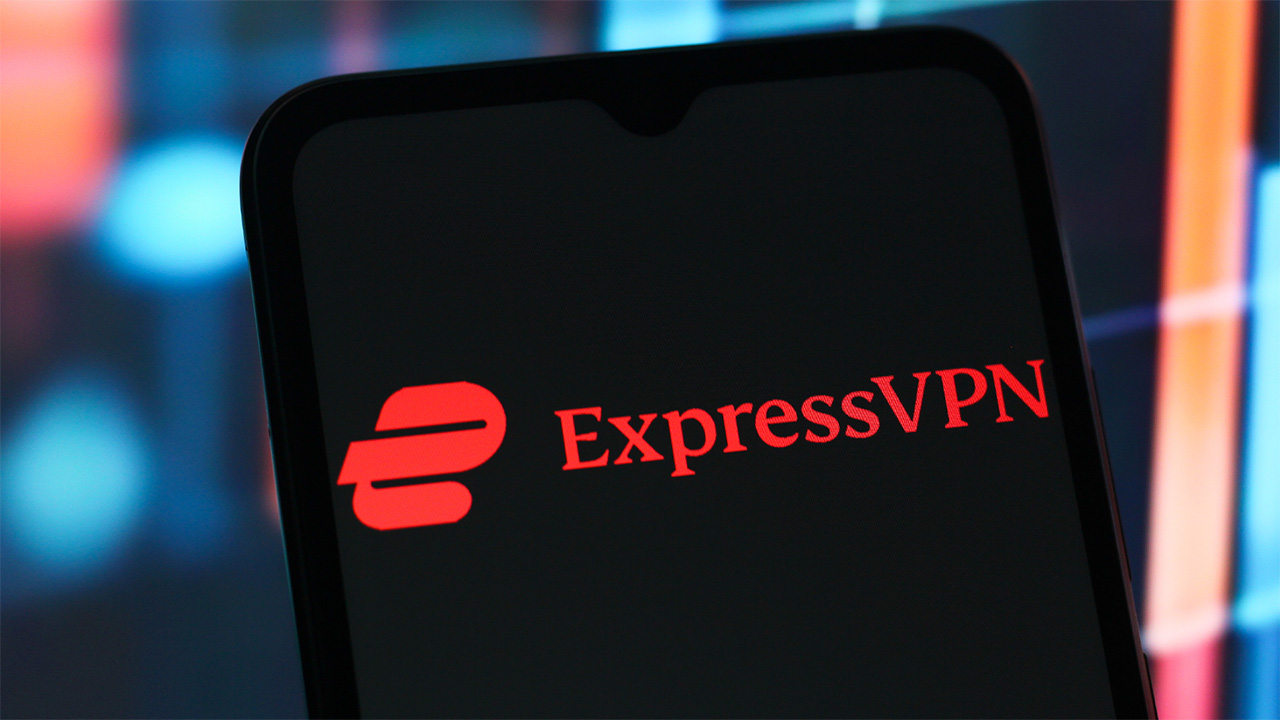
ExpressVPN has long been considered one of the best VPNs. It's a big industry name and is consistently at the forefront of VPN innovation – while being easy to use, even for VPN beginners.
At the start of September 2025, ExpressVPN overhauled its plans and pricing. Its one-size-fits-all approach has been replaced with a tiered structure. Three plans are offered at three different price points, each designed to appeal to certain users.
Previously costing $4.99 per month, ExpressVPN was never one of the best cheap VPNs. It still can't really be considered "cheap" but prices now start at $3.49 per month, making it more affordable.
This price change also brings it closer in cost to its competitors – notably NordVPN (from $3.09 p/m) and Proton VPN ($3.59 p/m).
NordVPN, along with Surfshark, operates a tiered structure. Proton VPN and most other major VPN providers offer just one tier of plan.
There are positives and negatives to tiered pricing but they're broadly a good thing, and mean you only need to pay for what VPN features you'll use.
However, I'm wondering whether ExpressVPN's implementation of tiered pricing actually hinders the provider more than it helps it.
Is it good value or has the move played into NordVPN's hands? Let's discuss.

What has changed?
This article is not a comment on whether tiered pricing is a good or bad thing. ExpressVPN has very valid reasons for splitting up its VPN offering.
In its announcement, the provider said the internet and our privacy needs have changed since its launch in 2009. It said "one plan can't serve everyone equally anymore," adding that the new mode gives you "the flexibility to choose the protection that matches your life."
The provider is correct in saying this and its new structure does offer variety of choice. But I think in doing this, ExpressVPN loses some of its appeal and I'm struggling to see what might make new subscribers choose ExpressVPN over one of its competitors.
There's no denying ExpressVPN used to be very expensive and a $1.50 per month price reduction is great. However, for $4.99 per month you received everything ExpressVPN had to offer. All its impressive extra features were bundled into one plan and this made it a real standout compared to NordVPN and others.
Features included the Keys password manager, threat protection, parental controls, eSIM data, and the Identity Defender suite.

We were really impressed and in November 2024 asked if ExpressVPN had become a bargain. Identity Defender, which provides you with ID and credit monitoring, monthly credit reports, ID theft insurance, and data removal services, was the clincher – however it is a US-exclusive.
There isn't actually a NordVPN plan that includes all of these features. Its identity protection equivalent, NordProtect, is included in NordVPN Prime (~$7 per month) but it's also a US-exclusive.
The only plan to feature a data removal service is NordPVN Ultra (~CA$8 per month) and this is only available in Canada and parts of Europe. NordPass password manager and Threat Protection Pro are included in all plans except NordVPN Basic.
With ExpressVPN you could get all these extras for less. Some features like Double VPN, Onion over VPN, and the now axed Meshnet were exclusive to NordVPN – its threat protection was also superior.
But ExpressVPN's old plan packed a punch and its wider cybersecurity suite made it stand out.
ExpressVPN Advanced provides the best value
Let's start with ExpressVPN Advanced. It's most similar to the ExpressVPN of old and the plan I'd say most people will gravitate towards.
It's $4.49 per month for 28 months of protection and includes almost all of ExpressVPN's extra features. You'll get three days of unlimited holiday.com eSIM data, Keys, an Aircove router discount, and most of Identity Defender – you don't get monthly credit reports or data removal.
The number of devices protected is 12 (up from eight) and all Advanced Protection features are present.
If you're an existing customer, you'll get almost everything you're currently paying for, with an increased device limit, and for $0.50 per month less.
I think this is the biggest takeaway. For most of ExpressVPN's exisiting customers, especially those outside of the US, ExpressVPN Advanced is good value.
If you're in the US, its value depends on what Identity Defender features you use, if any.
For those that enjoy the data removal services or monthly credit reports, you'll have to pay over $2 per month more for the privilege.
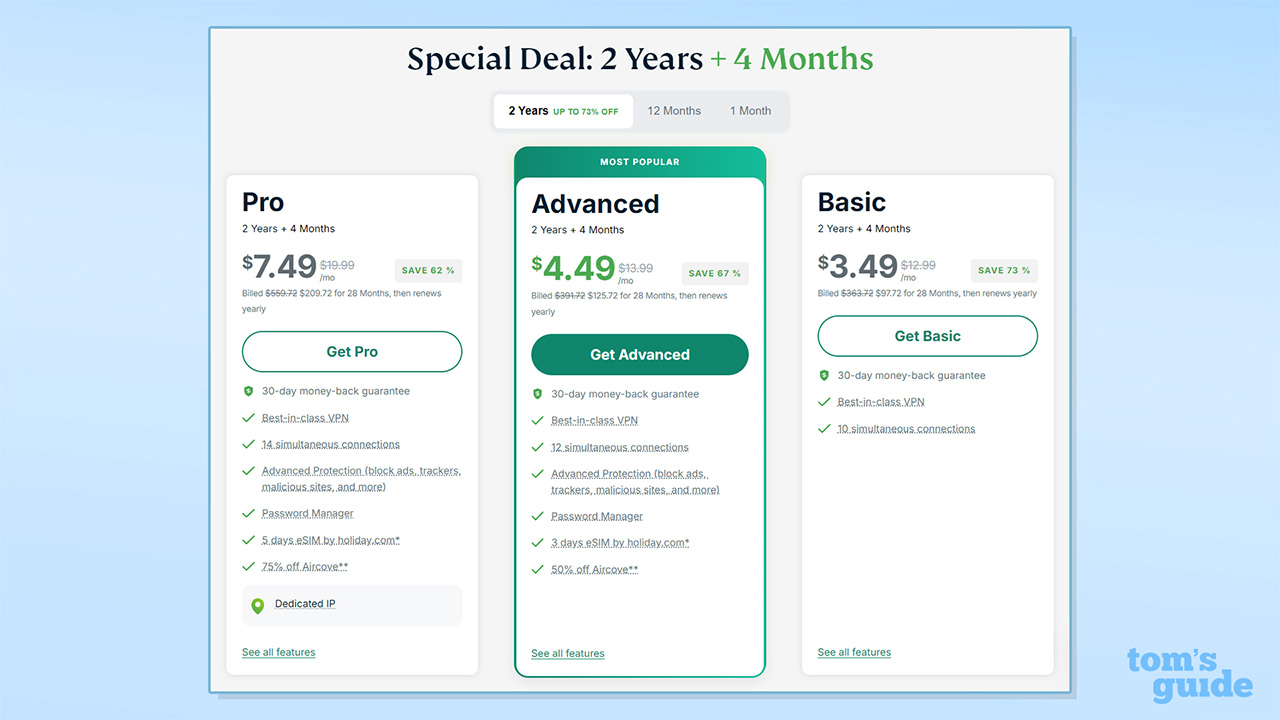
NordVPN Plus is comparable and currently costs $3.99 per month. Less separates these two plans, with ExpressVPN protecting more devices and boasting ID protection.
They both offer threat protection, post-quantum encryption (PQE), and a password manager, but NordVPN does have more directly VPN related features like Double VPN.
As a new customer, I can see the appeal of ExpressVPN Advanced, but I can also see why you'd pick NordVPN. It hinges on the Identity Defender features, and therefore whether you live in the US.
If you do, and want them, ExpressVPN edges it. If you don't, NordVPN will probably serve you better.
ExpressVPN Basic is still too expensive
The largest criticisms of the old ExpressVPN plan was paying for features you may not have wanted and the price was therefore very off-putting.
This has been corrected, with ExpressVPN Basic costing $3.49 per month for 28 months of protection.
The plan gets you all core VPN features, such as 3,000+ servers worldwide, VPN obfuscation, PQE, the Lightway protocol, and ExpressVPN's RAM-only TrustedServer technology.
There's also DNS-based ad-blocking and the number of devices you can protect has risen from eight to 10.
If you're an existing customer who's familiar with ExpressVPN, its product, and doesn't use any of the extra features, then you could downgrade your subscription. You'll keep the VPN functionality, increase your device protection limit, and save $1.50 every month.
If you use the extra features, this plan definitely isn't for you.
But I'm struggling to see how new customers would choose this plan over one offered by a competitor. Obviously ExpressVPN Basic isn't the leading plan but for what you get, it still feels too expensive.
If price is a big factor for you, then you'll likely be drawn to Surfshark ($1.99 per month), PrivadoVPN ($1.11 per month), or even Private Internet Access ($2.19 per month) if you're more of an expert. These providers offer more features than ExpressVPN Basic for less money.
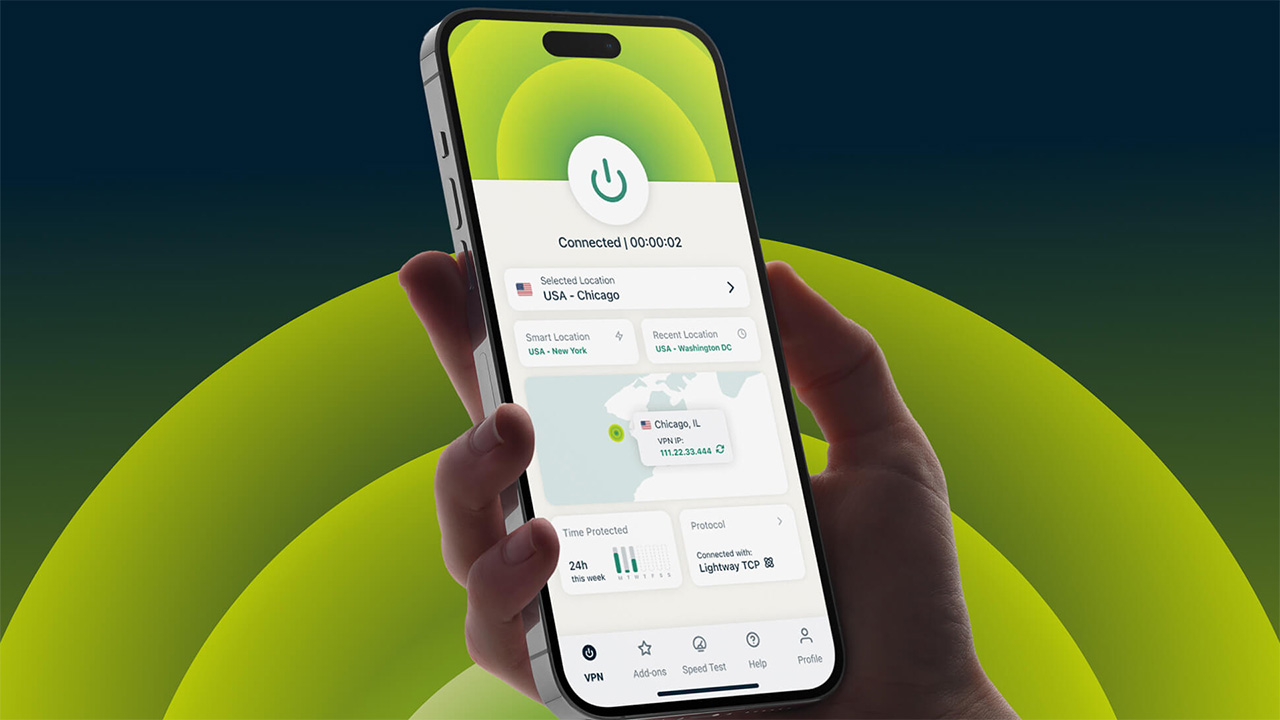
We love ExpressVPN's apps. They're super clear and simple, and you may be happy to pay a bit more for that ease of use. But if you just want a VPN to unblock content and protect your data, cheaper and more feature-rich providers are available.
ExpressVPN Basic is $0.10 per month cheaper than Proton VPN, but Proton VPN is faster in most cases – in our latest tests, it topped our fastest VPN list. ExpressVPN's Lightway Turbo did record the fastest single connection, but it's only available on Windows VPN apps.
With Proton VPN, you'll also get a few more extras, such as Secure Core servers and anti-censorship features.
Aside from its simplicity, it's also hard to justify picking ExpressVPN Basic over NordVPN Basic. They're very similar, protecting the same number of devices and offering post-quantum encryption. However, the presence of NordVPN's Double VPN, larger server network, and cheaper price gives it the edge over ExpressVPN.
ExpressVPN Pro is great but only for a few users
We return to the issue of US-exclusivity when discussing ExpressVPN Pro. It's a pricey $7.49 per month and for this you'll unlock everything ExpressVPN has to offer.
There's all features from previous plans, plus the monthly credit reports and data removal services that make up the full Identity Defender suite.
You'll be able to protect up to 14 devices on one plan, benefit from five days of unlimited eSIM data, and grab an Aircove router discount worth up to 75%.
The final, and arguably biggest, addition to this plan is Dedicated IP. Usually an optional paid add-on, Dedicated IP gives you a unique, fixed VPN IP address. Nobody else can use this IP address, your VPN performance may improve, and you'll likely see fewer CAPTCHAs.
No other leading VPN provider includes a dedicated IP in its plans, with Proton VPN and Mullvad VPN not offering it at all for personal users.
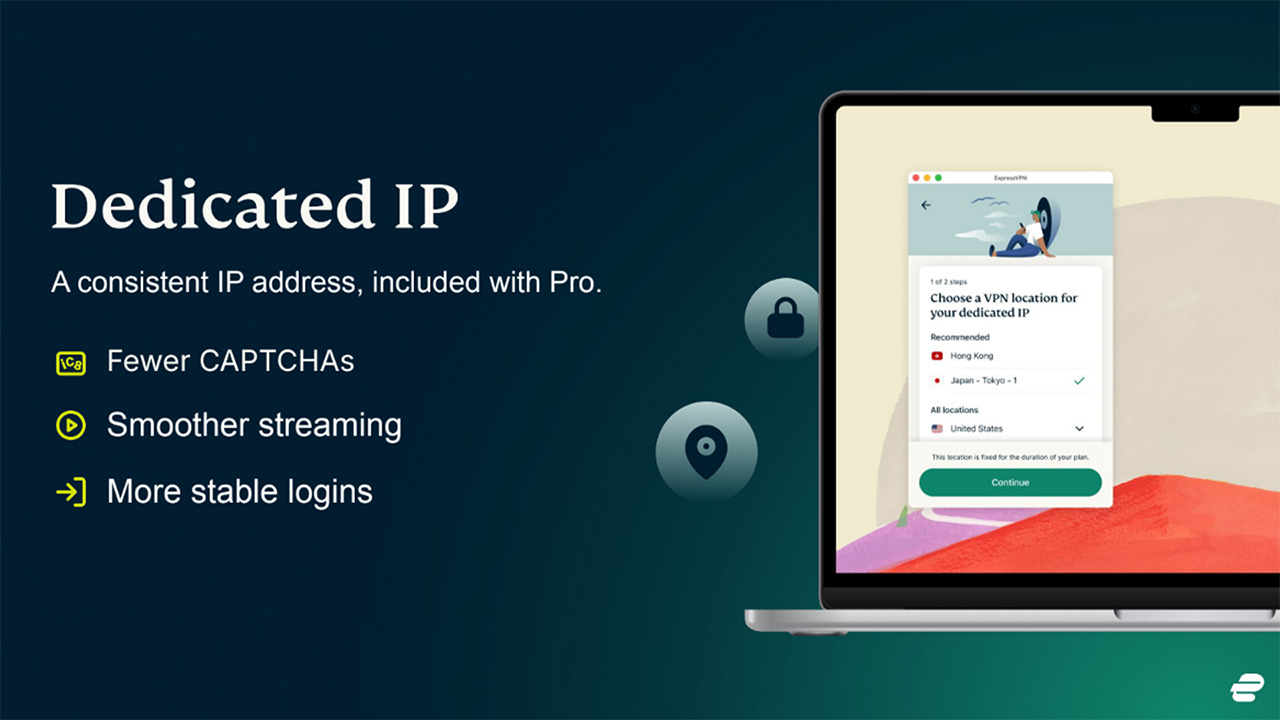
The add-on costs between $3.99 and $8.99 per month, depending on plan length, so its inclusion is great value if you're after a Dedicated IP. If you then also live in the US, it's even better value as you unlock all of Identity Defender.
Only a small number of users fit into both categories though. If you don't want Dedicated IP, it's hard to justify $7.49, even more so if you don't live in the US.
I think this is likely the point. It's not designed to be a widely adopted plan and serves a select few. ExpressVPN has said how Dedicated IP has been one of the most highly requested features from its community.
However, if you are in the US and after total ID protection, ExpressVPN Pro does challenge NordVPN Prime and its NordProtect ID features. NordVPN Prime is $0.50 cheaper and has a superior core VPN, but it protects fewer devices and doesn't come with Dedicated IP or data removal.
Nevertheless, the biggest issue for non-US users is there isn't anything to replace Identity Defender – for now at least. NordVPN offers alternatives to NordProtect for its most premium plans or doesn't offer an equivalent plan at all.
In the absence of Identity Defender, ExpressVPN's plans feel a little too expensive and don't seem strong enough when compared to competitors.
What next?
Clearly, the issue of Identity Defender's US exclusivity was present before the switch.
You could easily make the argument that ExpressVPN wasn't good value for non-US customers then either. At least now they do have the option of a cheaper plan.
ExpressVPN Advanced is the best value. Overall you're getting more for less. ExpressVPN has a dedicated user base and the changes best suit existing customers.
My question is whether that's enough.
I'm concerned that ExpressVPN has somewhat lost its USP by creating the tiered system. The differences between it and NordVPN have gotten smaller and I think it actually makes NordVPN look more attractive to new customers.
Although, others may disagree.
When you remove Identity Defender, NordVPN looks like a better package, costing less money – so how you view Identity Defender is crucial.
Reducing its current pricing a little or offering an alternative to Identity Defender may be a way forward.
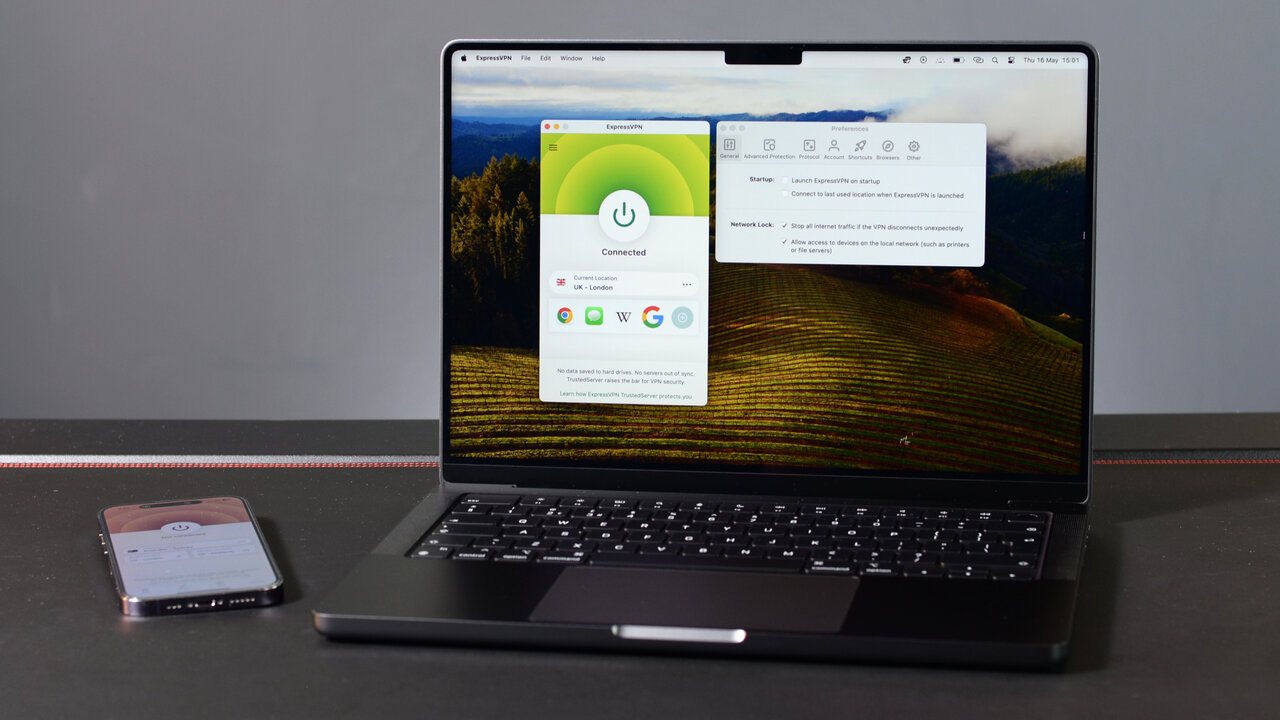
It's worth reminding you that all ExpressVPN plans have a 30-day money-back guarantee. You can try any plan and request a refund if you don't like it – the same goes for all major providers.
ExpressVPN confirmed that no existing users will be downgraded and legacy subscriptions remain uninterrupted. You'll keep everything you've paid for until your plan expires. Only then will the new tier structure come into play.
It will be very interesting to see how holiday sales affect ExpressVPN's pricing. Black Friday 2025 isn't far away and we expect ExpressVPN to slash its prices – but other providers will too. A significant price drop could make these plans far more attractive.
This structure is also in its infancy and we may see ExpressVPN make changes. We'll be keeping a close eye on how the provider moves forward.
ExpressVPN Advanced | 28 months | $4.49 per month
Following the provider's pricing overhaul, ExpressVPN Advanced is the best value plan and is well suited to most existing customers.
You'll get all core VPN features, including fast speeds and post-quantum encryption, most of Identity Defender, and protection for up to 12 devices. There's also free eSIM data and Aircove router discounts.
It's $4.49 per month ($125.72 up front pre tax) for 28 months of protection. There's also a 30-day money-back guarantee.
We test and review VPN services in the context of legal recreational uses. For example: 1. Accessing a service from another country (subject to the terms and conditions of that service). 2. Protecting your online security and strengthening your online privacy when abroad. We do not support or condone the illegal or malicious use of VPN services. Consuming pirated content that is paid-for is neither endorsed nor approved by Future Publishing.

George is a Staff Writer at Tom's Guide, covering VPN, privacy, and cybersecurity news. He is especially interested in digital rights and censorship, and its interplay with politics. Outside of work, George is passionate about music, Star Wars, and Karate.
You must confirm your public display name before commenting
Please logout and then login again, you will then be prompted to enter your display name.
 Club Benefits
Club Benefits





